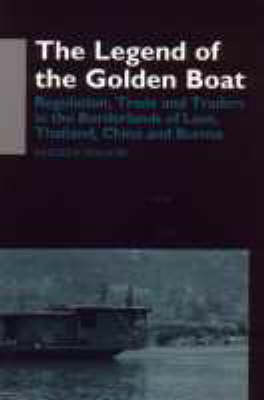Anthropology of Asia
1 total work
This book provides a new approach to the study of South-East Asia's northern borderlands. Based on extensive travel in the upper-Mekong hinterland, it provides a fascinating account of the lives of the transport operators, traders, entrepreneurs and government officials who are contributing to the contemporary revival in upper-Mekong cross-border connections. This ethnographic study is set against an intriguing background of war, revolution and reform, providing one of the most detailed histories of the upper-Mekong borderlands ever written. Contemporary developments in the upper-Mekong region are often interpreted in terms of the emergence of a trans-border Economic Quadrangle, characterised by liberalisation, integration and cooperation. The book seeks to go beyond this promotional rhetoric and explore the ambiguities and contradictions in the Quadrangle's development. While some see the Economic Quadrangle's liberalisation as signalling the demise of state power in the borderlands, this study argues that it is providing new incentives and opportunities for collaborative regulation.
